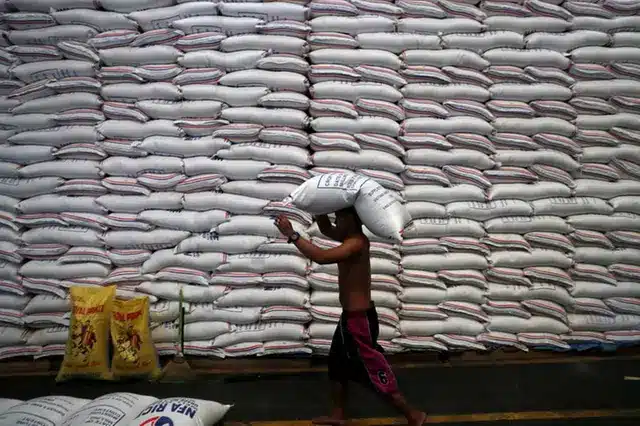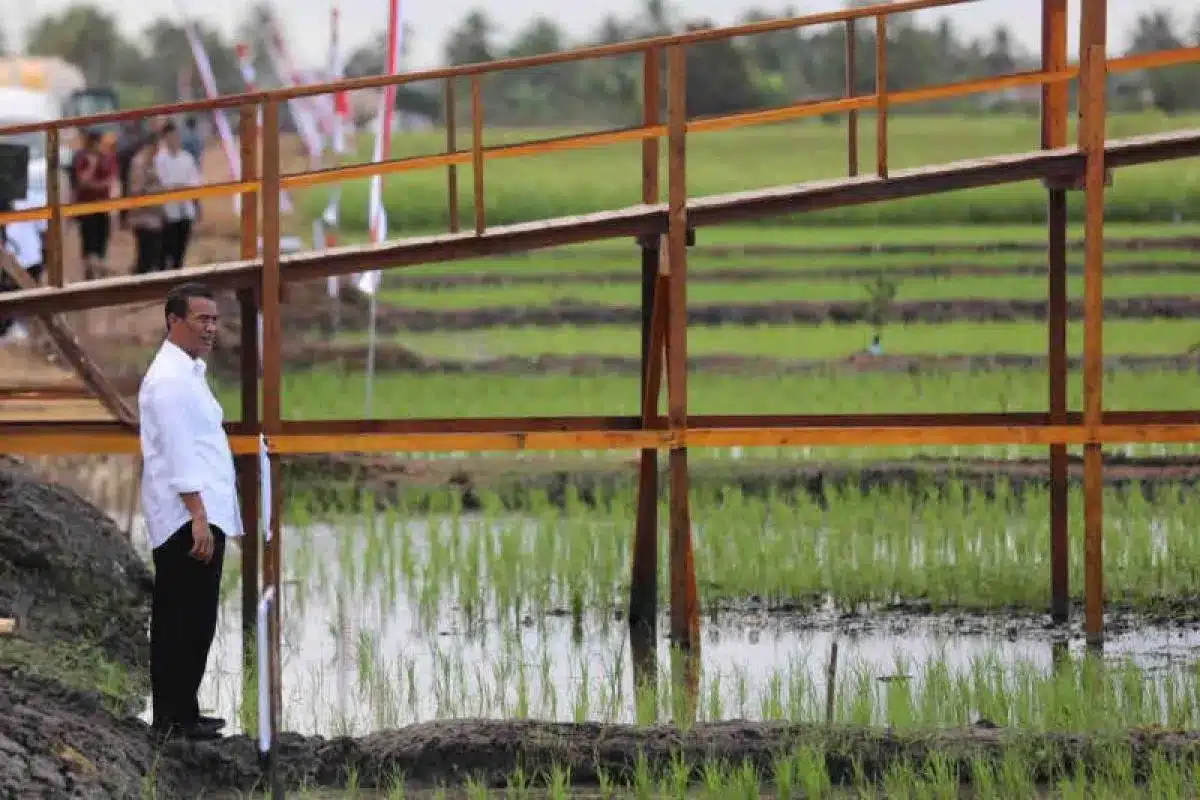Tags
‘Price cap on rice to stoke inflation’

A store retailer displays rice and their prices in accordance with the nationwide implementation of the new price caps on rice on September 5, 2023.
STAR / Edd Gumban
MANILA, Philippines — The continued imposition of a price cap on rice is expected to further fuel inflation, which accelerated to 5.3 percent in August after six consecutive months of declines, economists said.
ANZ chief economist for Southeast Asia Sanjay Mathur and economist Debalika Sarkar said the imposition of price ceilings on various varieties of rice could bring down the prices for regular milled rice by 34 percent and well-milled rice by 24 percent.
“However, price ceilings can stoke inflationary pressure or create shortages if not supported by complementary measures such as adequate monetary support to retailers, farmgate price regulations and/or a reduction of the rice import tariffs from the current 35 percent,” Mathur and Sarkar said in a recent commentary.
In the note titled “The Philippines: The Food and Fuel Problem Re-emerges,” the authors said the government has plans to deploy the Sustainable Livelihood Program (SLP) budget to compensate for the losses borne by rice retailers.
However, ANZ said evasion of the ceilings could not be ruled out as the coverage of the program is limited and rice inventories are at a multi-year low.
President Marcos issued Executive Order 39 mandating a price ceiling of P41 per kilo for regular milled rice and P45 per kilo for well-milled rice effective Sept. 5.
The House of Representatives is closely working with the Department of Budget and Management (DBM) to allocate P2 billion in cash assistance for retailers affected by the imposition of price ceiling.
The economic team of the Marcos administration led by Finance Secretary Benjamin Diokno said the implementation of price controls is a temporary measure aimed at assisting vulnerable and disadvantaged sectors during a period of high rice prices.
The EO is in line with the comprehensive approach to mitigate the concerns of rice retailers and farmers and to ensure that the rice supply remains sufficient at lower prices.
ANZ has revised its inflation forecast for this year, increasing it from 5.3 percent to six percent. This adjustment comes after inflation accelerated to 5.3 percent in August, following a six-month period of gradual decline from a peak of 8.7 percent in January.
Inflation averaged 6.6 percent from January to August, still way above the BSP’s two to four percent target range.
ANZ said it would take longer for inflation to fall back below four percent in the first quarter of next year from the fourth quarter of this year.
“We see scope for inflation to rise in the near term. The risk is that food and energy prices feed through to other components of the inflation basket. Rice price ceilings may not generate the desired outcome if not supported by complementary measures,” Mathur and Sarkar said.
According to the authors, the acceleration in food prices was broad based to reflect a supply shock from seasonal typhoon activity and the impact of India’s restriction on rice exports.
“Oil and food prices can also impact inflation expectations and raise the risk of second-round effects through the wage-price spiral. Consumer inflation expectations in the Philippines are usually adaptive and, like other emerging markets, are influenced heavily by prices of food, transport and utilities,” Mathur and Sarkar said.
They warned that the formation of inflation expectations could also feed through to wages.
Bangko Sentral ng Pilipinas Governor and Monetary Board chairman Eli Remolona Jr. said he sees no grounds for raising interest rates on Sept. 21, despite the recent uptick in inflation. This is due to the anticipation that supply shocks, which caused the surge in food and oil prices, will subside relatively quickly.
The central bank’s Monetary Board was able to extend its hawkish pause as it kept interest rates unchanged for three straight rate-setting meetings from May to August this year due to the inflation downtrend as well as the slower-than-expected gross domestic product growth in the second quarter.
It would be recalled the BSP raised key policy rates by 425 basis points between May last year and March this year to tame inflation and stabilize the peso that slumped to an all-time low of 59 to $1 last October.
https://www.philstar.com/business/2023/09/17/2296780/price-cap-rice-stoke-inflationPublished Date: September 16, 2023







